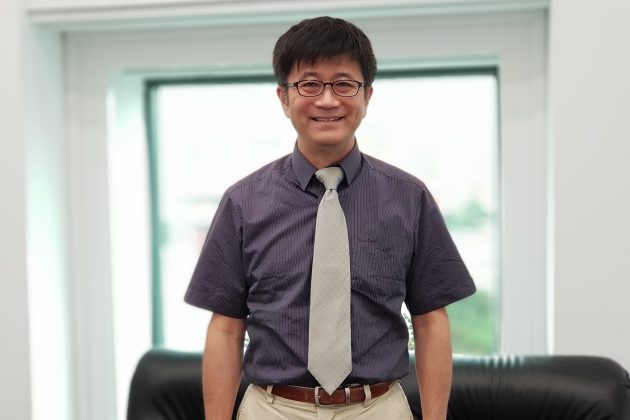
▲ What is the damage of dementia? Dr. Ming-Jang Chiu, director of the Department of Neurology at National Taiwan University Hospital, argues that dementia is a time bomb for millions in the population. (CNEWS information photo / photo reporter Hu Chao-hsin)
CNEWS reporter Chen Yu-kai / Taipei report
A middle-aged man in Hsinchu City recently lost his temper when his mother, who is affected by dementia, didn’t clean up herself in public. After caring for her for more than three years, his emotions went out of control as he took her outside and slapped her in the face in front of the neighbors. In the eyes of experts, however, this experience illustrates the dilemma faced by those confronted by the illness of a relative. According to studies, more than 30 percent of caregivers of people affected by dementia have serious depression symptoms, to the point that they might even fall sick too.
This is just the tip of the iceberg though! Dr. Ming-Jang Chiu, director of the Department of Neurology at National Taiwan University Hospital, stresses that the prevalence of dementia among those over 65 years old is 8 percent in the country, and the population of dementia is increasing at an annual rate of 10,000. Within 20 years, this population may break through the 500,000 mark.
Dr. Ming-Jang Chiu said that more than 70 percent of Taiwanese families affected by dementia have single caregivers, meaning that one person will be “abducted” for a long time because of the illness of a relative. Given the soaring needs for long-term care, it is expected to impact the lives of millions in the future.
Those who were forced to sacrifice their work or personal life to take care of their sick relatives 24/7 are considered as “black sheep.” According to domestic clinical observations, more than two-thirds of them have emotional problems, while one-third suffers from insomnia, emotional loss and more.
Based on domestic data, Yea-Ing Lotus Shyu, a professor of the School of Nursing at Chang Gung University, said that up to 85 percent of caregivers admit that they need to take care of their own health problems while caring for their sick relatives and more than 50 percent of them reported not being able to meet the needs of people with dementia and their own health at the same time. Even more worrisome, 80 percent of these family caregivers complain that they dare not to express their feelings if they are in a bad mood while facing their sick relatives.
Yea-Ing Lotus Shyu has seen many cases where the caregiver collapses before the care recipient. This is the result of the multiple dilemmas faced by the caregiver as he or she feels that there is no external support and no way out. In the most extreme cases, some might even end the life of their loved ones before committing suicides, setting the stage for a long song of sadness.
The problem is too big and comes too fast. Dr. Ming-Jang Chiu stressed that the population is aging, and the children won’t have the manpower to take care of their relatives, meaning that the impact of dementia is very big in Taiwan. The question is how to take care of people with dementia in a situation where the elderly care for the elderly. In many situation, neither of them is in good shape, but the one with dementia are being treated first. The result is many caregivers taking the lead in cancer, cardiovascular and other diseases. The government must actively think about how to effectively use resources to cope with this problem caused by dementia.
Yea-Ing Lotus Shyu also suggested that you should not feel bad about yourself for using the services, because of the traditional concept of “filial piety” emphasizing taking care of sick parents all by the children. Caregivers must understand that applying for long-term care doesn’t mean that you are lazy. Applying for long-term resources is the right thing to do because only by doing so can the elderly be remained being cared at home while caregivers can maintain their own health and quality of life. In the Taiwan Dementia Plan 2.0, the provisions for the popularization of family caregiver support services is a particularly important strategy. In 2020, 50 percent of patients’ families will receive support and education. If Taiwan can actively implement this policy, experts believe it can improve the current predicament.
SEE ALSO:
Great strides for human rights made with Taiwan Dementia Plan 2.0 Funding and manpower still put new policy to the test
About 10,000 young people with dementia have been forgotten by long-term care services, haven’t they?
Photo source: CNEWS file photo / photo reporter Hu Chao-hsin
[For article reprint, please indicate the source]
延伸閱讀
About 10,000 young people with dementia have been forgotten by long-term care services, haven’t they?
- 2018-07-20
- 陳 鈞凱
Great strides for human rights made with Taiwan Dementia Plan 2.0 Funding and manpower still put new policy to the test
- 2018-07-20
- 陳 鈞凱
Taiwan’s 270,000 people with symptoms of dementia are fool, aren’t they? Concepts need to be reversed
- 2018-07-20
- 陳 鈞凱
